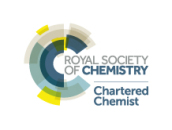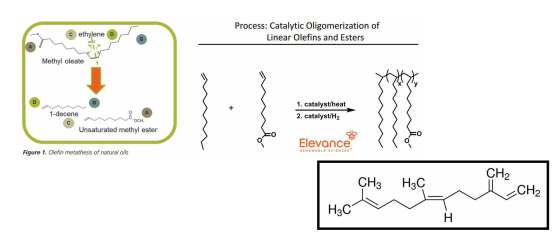New Molecules: prospects in Lubricants
Lubricants Chemistry is on the cusp of a radical change, driven by legislation requiring lower greenhouse gas emissions, which then leads to changing demands on lubricants for passenger cars. In the short term the internal combustion engine must generate more power from a smaller volume. However, a longer-term scenario sees the internal combustion engine playing less of a role in a future zero emissions vehicle. This is leading to a demand for new molecules to deal with the new environment, such as
- new Viscosity Modifiers and/or Friction Modifiers for lower energy consumption,
- new surface-active molecules (Anti-wear, Extreme Pressure, Friction Modifier) to deal with new surfaces in equipment.
Additionally "green" chemistry is leading to either new ways of making both old and completely new molecules from sustainable sources.
Recently we have seen several examples of new molecules from sustainable sources finessed before the Lubricants Industry. Elevance Aria(R) WTP from Elevance Renewable Sciences (top route) and trans-beta farnesene from both Intrexon and Amyris (lower image) represent two quite different points on the product development curve, as the former is a blending component and the latter is an intermediate en route to a wide variety of potential chemicals.




